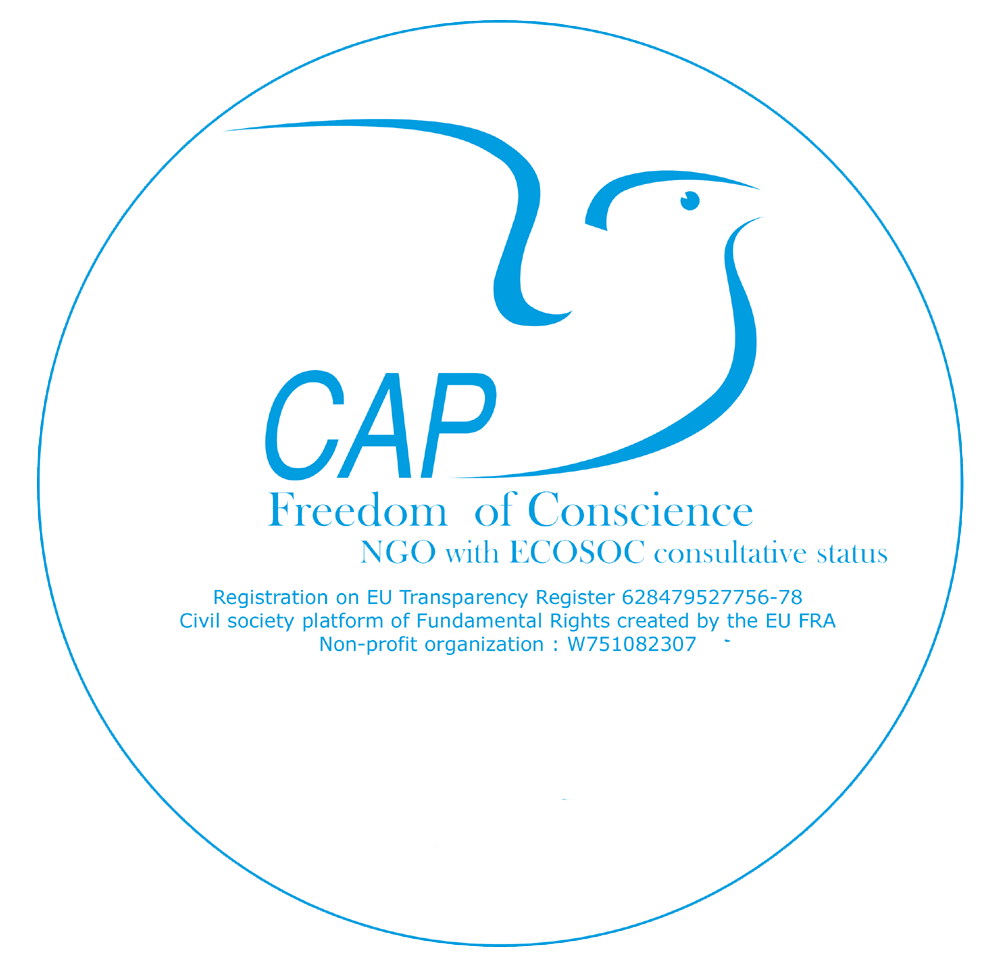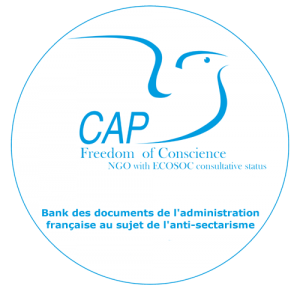CAP Liberté de Conscience October 2024
Religious Freedom and Populism The Appropriation of a Human Right and How to Counter It
 The rise of populism presents a significant challenge to the universal principles of human rights. In the anthology Religious Freedom and Populism: The Appropriation of a Human Right and How to Counter It, editors Bernd Hirschberger and Katja Voges compile a series of scholarly contributions that examine how right-wing populists and extremists worldwide appropriate and distort the human right to freedom of religion or belief (FoRB). This critical volume not only dissects the rhetorical strategies employed in this appropriation but also delves into the societal dynamics that facilitate such distortions. It offers valuable insights and proposes strategies to strengthen human rights and foster a constructive culture of debate in democratic societies.
The rise of populism presents a significant challenge to the universal principles of human rights. In the anthology Religious Freedom and Populism: The Appropriation of a Human Right and How to Counter It, editors Bernd Hirschberger and Katja Voges compile a series of scholarly contributions that examine how right-wing populists and extremists worldwide appropriate and distort the human right to freedom of religion or belief (FoRB). This critical volume not only dissects the rhetorical strategies employed in this appropriation but also delves into the societal dynamics that facilitate such distortions. It offers valuable insights and proposes strategies to strengthen human rights and foster a constructive culture of debate in democratic societies.
At the heart of the book is the observation that human rights, particularly FoRB, have become targets for appropriation by right-wing populist movements. These movements, committed to exclusivist power interests and discriminatory ideologies, find the universal and emancipatory nature of human rights antithetical to their goals. Rather than openly denouncing human rights—a tactic unlikely to gain public support given the positive connotations associated with the term—they opt for a more insidious approach. They reinterpret and distort human rights to fit their narratives, effectively hollowing out their genuine essence and transforming them into tools that serve oppressive agendas.
The book is structured into three comprehensive parts. The first part, “Populist Reinterpretation and Appropriation of Religious Freedom Worldwide,” presents concrete case studies that illuminate the characteristics and narratives of populist appropriation and reinterpretation of FoRB. For instance, Bernd Hirschberger and Katja Voges analyze far-right parties and networks in German-speaking countries, focusing on Germany’s Alternative für Deutschland (AfD). They reveal how these groups present themselves as the sole defenders of religious freedom and the Christian Occident, while concurrently fueling conspiracy theories and exploiting societal fears, particularly concerning Islam and migration. This clientelistic and demagogic approach not only distorts FoRB but also risks the human right being perceived as an exclusively “right-wing” issue, thereby impeding unbiased advocacy.
Regina Elsner’s contribution examines the Russian Orthodox Church’s use of historical narratives of oppression during the Soviet era to establish a version of religious freedom that positions the Church as the moral compass of Russian society. This reinterpretation supports the Kremlin’s illiberal policies and suppresses alternative religious expressions, demonstrating how FoRB can be manipulated to reinforce authoritarianism.
In the context of the United States, Jeremy Gunn explores how former President Donald Trump instrumentalized religious freedom and identity politics to mobilize white Evangelicals. Gunn illustrates how populist leaders can exploit religious sentiments and FoRB to gain political power, often at the expense of minority rights and democratic principles.
The second part of the book, “Societal Dynamics and Problematic Reactions towards Populist Appropriation,” addresses the social contexts that enable the success of populist appropriations. Heiner Bielefeldt emphasizes that countering populist distortions requires more than legal prohibitions; it necessitates active public criticism and a clear understanding of FoRB’s normative contours. Youssef Dennaoui discusses the mutual reinforcement of anti-Muslim hostility and the appeal of Islamist groups, highlighting how far-right narratives can normalize discriminatory discourses in public perception.
Valentine Zuber provides an insightful analysis of France’s laïcité—a principle intended to guarantee religious freedom—which has been co-opted by right-wing populists to exclude Islam specifically. This appropriation risks transforming laïcité from a safeguard of pluralism into a tool of state control and discrimination. Similarly, Eva Maria Lassen and Marie Juul Petersen examine Denmark’s legal actions that threaten FoRB, particularly for Muslims, due to secularist tendencies and religious illiteracy that make society more susceptible to restrictive policies.
The final part, “Signs of Hope and Proposals for Solutions,” discusses strategies to counteract populist appropriation and reinforce FoRB. Contributors stress the importance of resisting the temptations of withdrawal or imitation in the face of populist pressures. Instead, they advocate for building broad alliances within the democratic spectrum to promote and support FoRB. The role of religious institutions is underscored as crucial in this endeavor. For example, Katja Dorothea Buck, Bernd Hirschberger, and Katja Voges argue that Christian churches, given their moral responsibility, should actively oppose misanthropic ideologies and discrimination. They can play a key role in promoting interreligious solidarity and countering the appropriation of FoRB.
Throughout the anthology, a recurring theme is the need for a nuanced understanding of FoRB and its indivisibility from other human rights. The contributors caution against simplistic and polarizing interpretations that can feed into populist agendas. They emphasize that protecting FoRB is not about privileging certain religions or traditions but about upholding the universal dignity and rights of all individuals, regardless of their beliefs.
Religious Freedom and Populism: The Appropriation of a Human Right and How to Counter It offers a critical examination of how populist movements distort human rights for their own ends. By providing detailed case studies and thoughtful analyses, the book illuminates the complex interplay between populism, societal dynamics, and human rights discourse. It calls for a proactive and informed response to protect FoRB and, by extension, the democratic values that underpin human rights. The anthology is a significant contribution to the discourse on human rights in the age of populism and serves as a valuable resource for scholars, policymakers, and anyone committed to defending universal human rights against appropriation and distortion.
More information : Religious Freedom and Populism The Appropriation of a Human Right and How to Counter It






